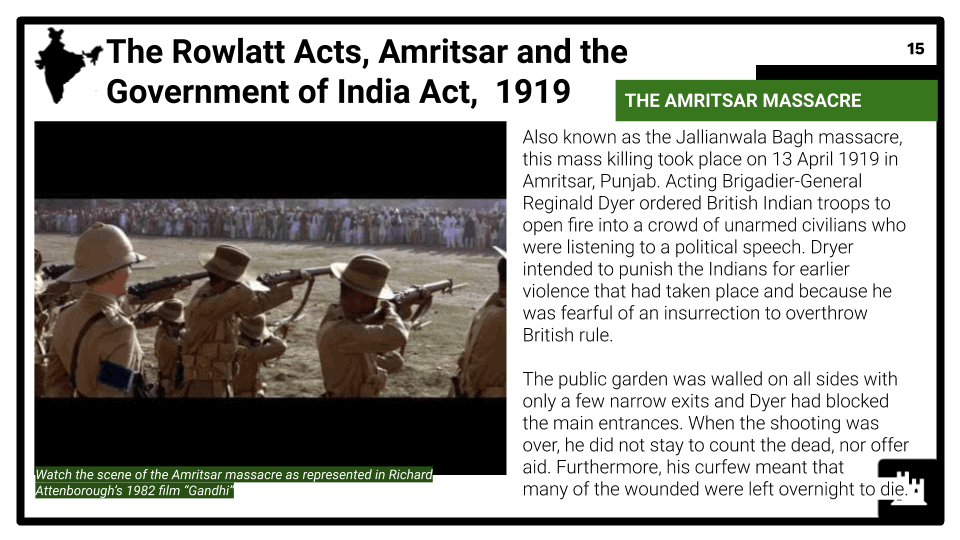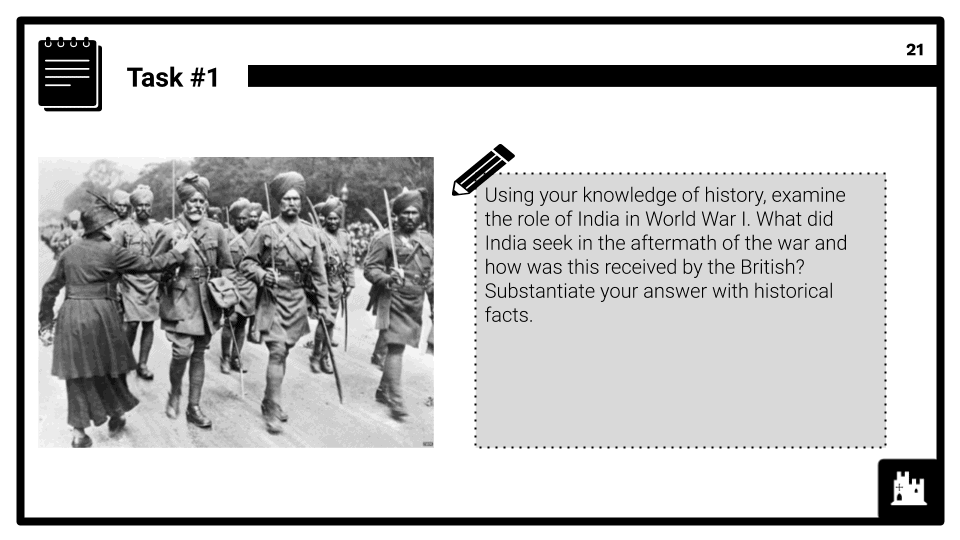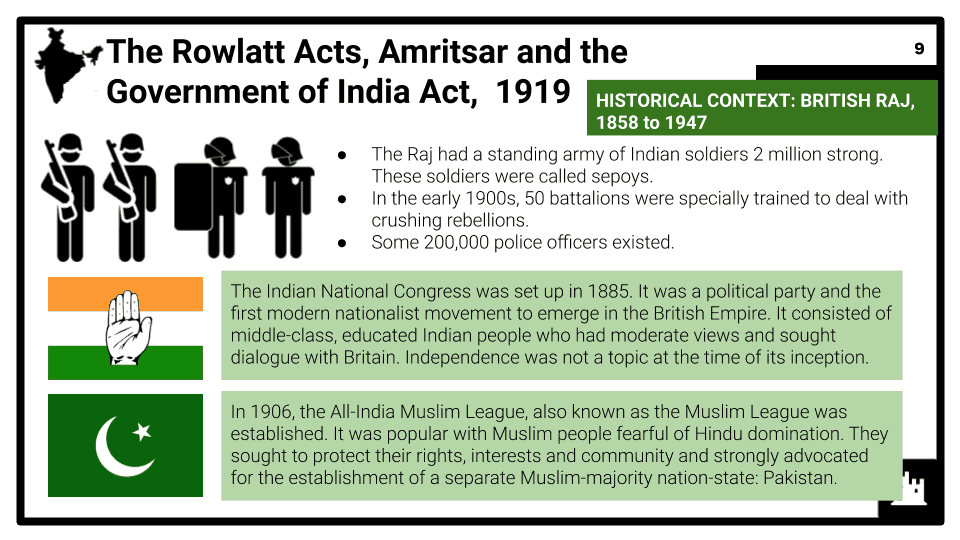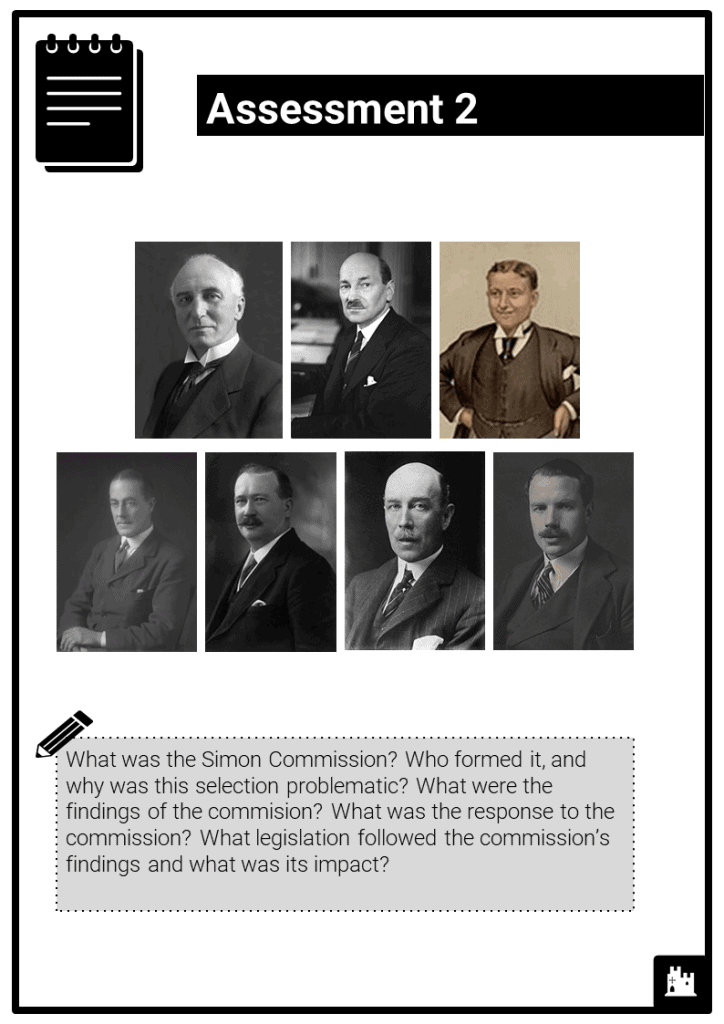Teach any Edexcel IGCSE module : Colonial rule and the nationalist challenge in India, 1919–47, no prep needed!
Do you want to save dozens of hours in time? Get your evenings and weekends back? Be fully prepared to teach any Edexcel iGCSE topic?
Every Edexcel iGCSE topic is covered, and each module comes complete with:
Colonial rule and the nationalist challenge in India, 1919–47
For this history module, students need to learn about:
The Rowlatt Acts, Amritsar and the Government of India Act, 1919
- Impact of the First World War on India, including the growth of nationalism;
- The key terms of and reactions to the Rowlatt Acts and the nature of and weaknesses of the Government of India Act/Dyarchy (1919);
- Causes, events and significance of the Amritsar Massacre.
Gandhi and Congress, 1919–27
- The causes, nature and consequences of the rise of nationalism in India;
- Gandhi and his aims and methods;
- Congress and Swaraj;
- Civil disobedience;
- The Satyagraha Campaign;
- Attitude of Congress to the British, Muslims and untouchables;
- The role of Jinnah
Key developments, 1927–39
- Consultation and conflict in the late 1920s and 1930s;
- The causes and consequences of the Simon Commission;
- Salt March and Round Table Conferences;
- The significance of the Government of India Act (1935) and the outcome of the elections of 1937;
- The roles of Gandhi and Jinnah and the Muslim League.
The impact of the Second World War on India
Relations between Gandhi, Nehru and Jinnah, and their policies;
- Attitudes towards, and the political and economic impact of, the Second World War;
- The significance of the Lahore Resolution (1940) and the ‘Quit India’ campaign;
- The Cripps Mission and its failure;
- The role of Wavell;
- The importance of Chandra Bose.
Communal violence, independence and partition, 1945–47
- The events and impact of the Simla Conference;
- The attitude of the British Labour Government to India;
- The Cabinet Mission and its impact;
- The causes, nature and impact of Direct Action;
- The significance of Muslim/Hindu differences and clashes;
- The demand for Pakistan;
- The role of Mountbatten;
- British acceptance of partition as a solution, and its immediate consequences,
- The problem of the Princely States;
- Further communal violence.






